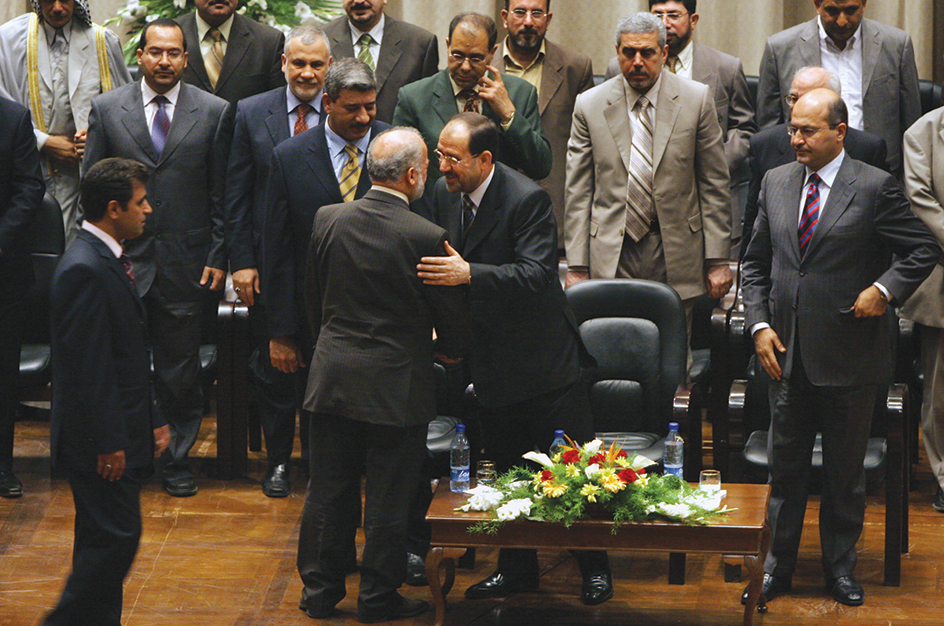Jafari, Ibrahim al-, << JAH fah ree, ee brah HEEM ahl >> (1947-…), sometimes spelled al-Jaafari, was the interim (temporary) prime minister of Iraq from May 2005 until May 2006. As prime minister, Jafari was the most powerful leader in Iraq’s transitional government. Iraq had been in the process of establishing a new government since 2003, when United States-led forces overthrew the government of Iraqi dictator Saddam Hussein.

Jafari belongs to al-Da`wa, a conservative religious party associated with the Shī`ah branch of Islam. Al-Da`wa was part of a Shī`ah coalition that won election to Iraq’s transitional National Assembly in January 2005. The coalition, called the United Iraqi Alliance, has close ties to Iraq’s most influential Shī`ite clergyman, Grand Ayatollah Ali al-Sistani.
Jafari was born in 1947 in Karbala, Iraq. In 1966, he joined al-Da`wa. He received a medical degree from Mosul University in 1974. In the late 1970’s, al-Da`wa launched a rebellion against Hussein’s government. In response, Hussein began to kill and torture thousands of al-Da`wa members. In 1980, Jafari fled Iraq. By the mid-1980’s, Hussein had crushed al-Da`wa’s rebellion. However, the group secretly remained active. Jafari spent most of the 1980’s in exile in Iran. In 1989, he moved to the United Kingdom.
Jafari returned to Iraq shortly after the Hussein government was toppled. The Coalition Provisional Authority (CPA)—the U.S.-led administration that took power after the overthrow of Hussein—appointed Jafari to an Iraq Governing Council. This council was mainly an advisory body. In June 2004, the CPA handed power over to an interim Iraqi government. During late 2004 and early 2005, Jafari served as one of two deputy presidents in this interim government.
In April 2005, Iraq’s transitional Presidency Council named Jafari prime minister. In May, Jafari and his cabinet were sworn into office. His government oversaw the drafting of a new constitution for Iraq, which was approved by the Iraqi people in October 2005.
